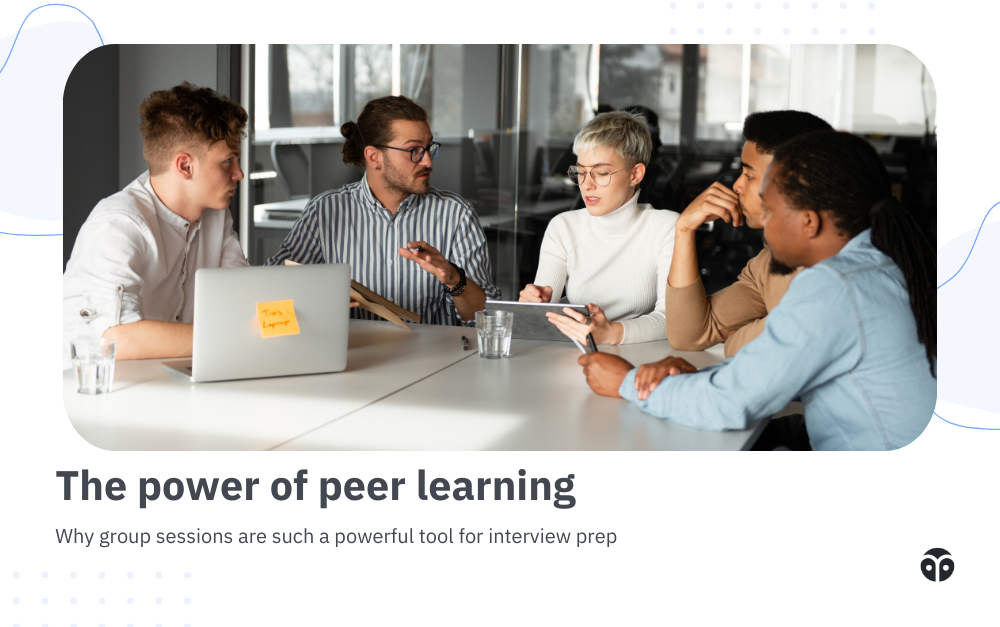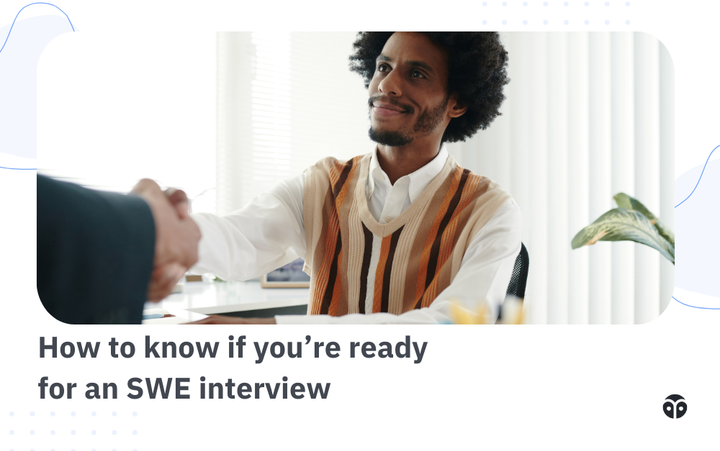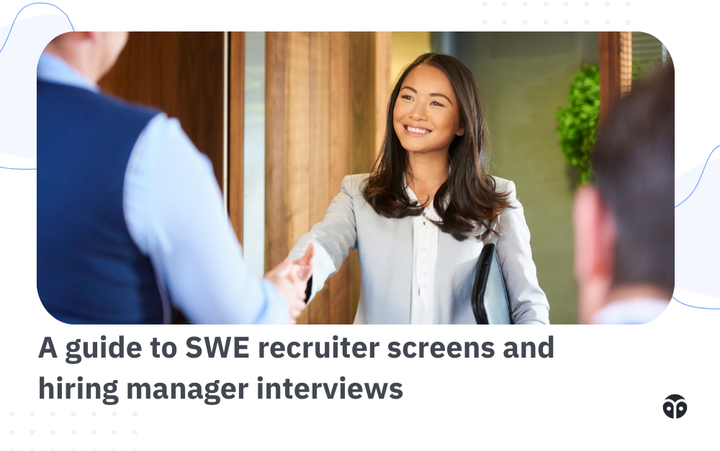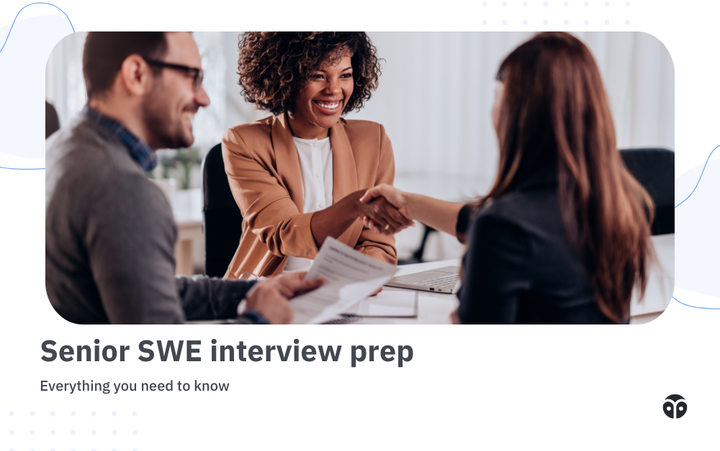The power of peer learning
Here's why group sessions are such a powerful tool for interview prep.

When you’re prepping for a technical interview, it’s tempting to focus on grinding through algorithms on LeetCode or doing a few mock interviews. But one of the best tools for preparing — and one that often gets overlooked — is working with others in peer group sessions.
In my experience, this is one of the most effective ways to learn, get better at problem-solving, and sharpen your communication skills.
What are peer group sessions?
Peer group sessions involve working through coding problems alongside other engineers. During these sessions, participants take turns explaining their thought processes, discussing solutions, and offering feedback. This collaborative setup helps you improve both your technical skills and your ability to communicate clearly — two critical aspects of technical interviews.
The beauty of peer learning is that you get to see how others approach the same problem, pick up new strategies, and receive constructive feedback. It’s a dynamic way to build your skill set while enhancing your communication under pressure.
Peer sessions vs. mock interviews
While mock interviews are valuable for replicating the high-stakes environment of an actual interview and helping you evaluate readiness, they can’t match the learning opportunities offered by peer group sessions. Mock interviews are about performance, whereas peer group sessions focus on growth. In a group setting, you have more opportunities to fail safely, receive feedback, and improve your skills in a supportive environment.
Think of mock interviews as a performance test and peer sessions as a learning lab. The two shouldn’t be seen as either/or; they complement each other. But if you lean too heavily on mock interviews, you’re likely missing out on the deeper learning opportunities peer group sessions provide.
Why peer group sessions work
Peer group sessions create a space for collaborative problem-solving, real-time feedback, and constant communication practice. They push you to explain your thought process, expose you to different perspectives, and encourage you to think critically about your solutions.
Unlike working solo or even in a mock interview, peer group sessions offer a balance between technical problem-solving and communication practice. This combination mirrors real-world work environments and helps you improve overall performance.
Here’s why they’re so effective:
- Everyone thinks about problems differently. In a group setting, you’ll see how others tackle challenges, and that will help you refine your approach.
- Communicating your approach is essential in interviews, and peer group sessions give you repeated opportunities to explain your thinking clearly.
- Achieving clear communication in spoken language helps crystalize ideas in a way that improves the translation to code.
- You can immediately see how your peers react to your problem-solving process and get feedback on areas where you can improve.
The power of collaborative problem solving
In peer sessions, you’re learning by doing and teaching. Explaining your approach forces you to organize your thoughts more clearly, which deepens your understanding. When peers ask questions or offer alternative solutions, it pushes you to think critically and consider different angles. This feedback loop helps you develop a well-rounded approach to problem-solving.
Unlike mock interviews, peer group sessions emphasize learning. You can pause, ask questions, and dive deeper into reasoning, which gives you space to explore different problem-solving techniques without the pressure of being evaluated.
Identifying and strengthening weaknesses
One of the great things about peer group sessions is how they expose gaps in your knowledge. Maybe you’re great at solving problems on your own, but when you have to explain it to someone else, you realize there’s a piece you don’t fully understand. This kind of discovery is crucial because it helps you know exactly what to focus on in your prep.
Beyond that, you’ll also pick up new techniques from your peers. Maybe someone shows you a more efficient solution or a fresh way to think about a problem. These moments fill in gaps in your own skillset and make you a more adaptable problem solver.
Peer sessions help you with:
- Discovering knowledge gaps. Explaining something to others often reveals areas you thought you understood but didn’t fully grasp.
- Learning new techniques. Watching others solve problems can introduce you to different approaches that expand your own toolkit.
- Getting real-time feedback. Instead of waiting until after an interview to learn where you went wrong, your peers give you immediate insights on your performance.
- Becoming more confident. Coding in front of someone else, explaining your thought process, and answering questions on the fly can be nerve-wracking. The more you do this in peer group sessions, the more comfortable you’ll get.
Get holistic interview prep with Formation
The Formation Fellowship gives mid-level and senior engineering job seekers everything they need to land their dream roles—including personalized skill brush-ups, resume help, unlimited mock interviews with experienced software engineers and hiring managers from top-tier tech companies, career and negotiation support, and more.
If you’re having trouble navigating your job search on your own, apply here and get unconditional support from a team of engineering mentors, technical recruiters, career coaches, and more.



